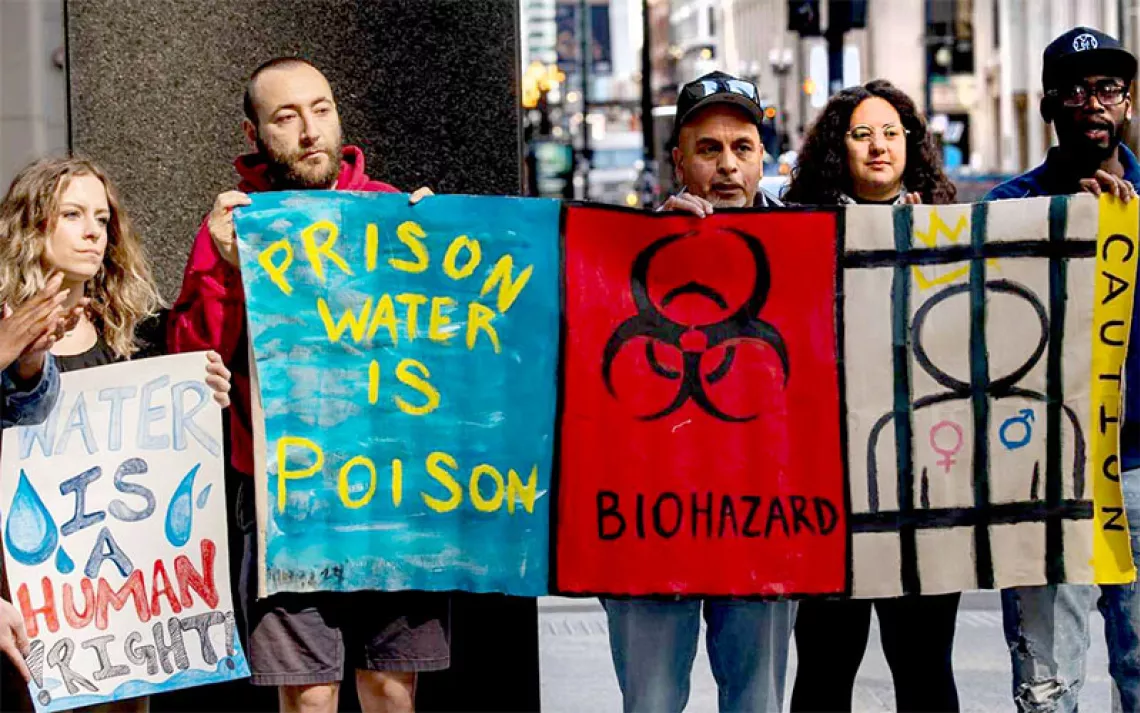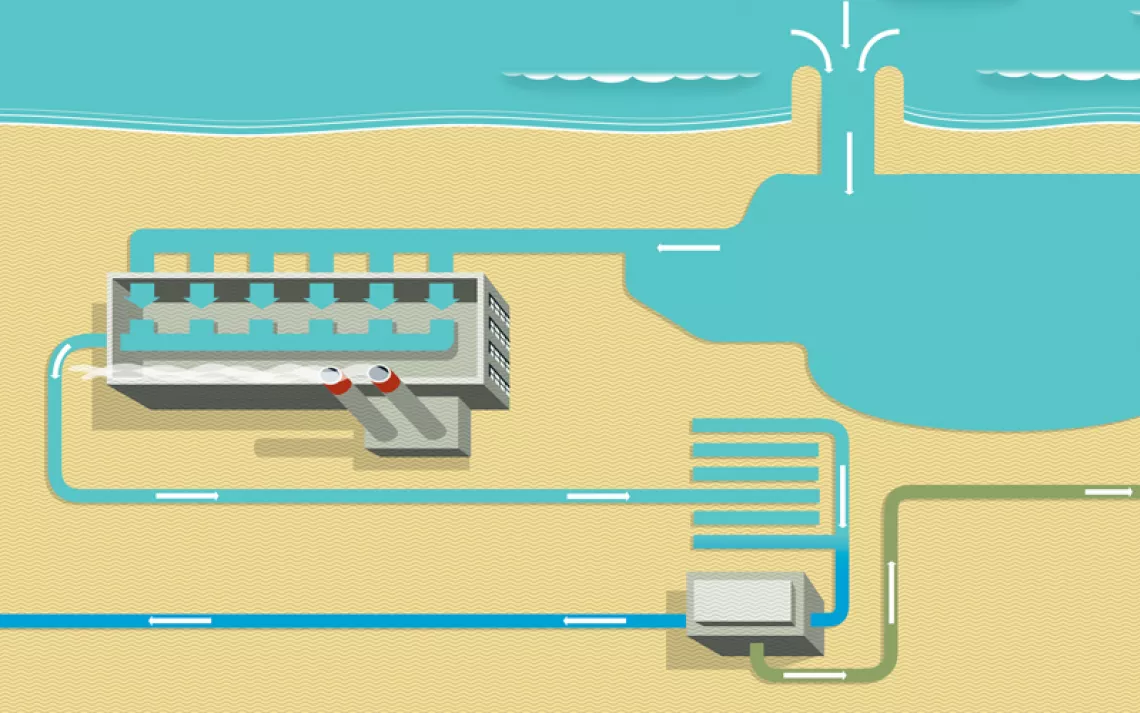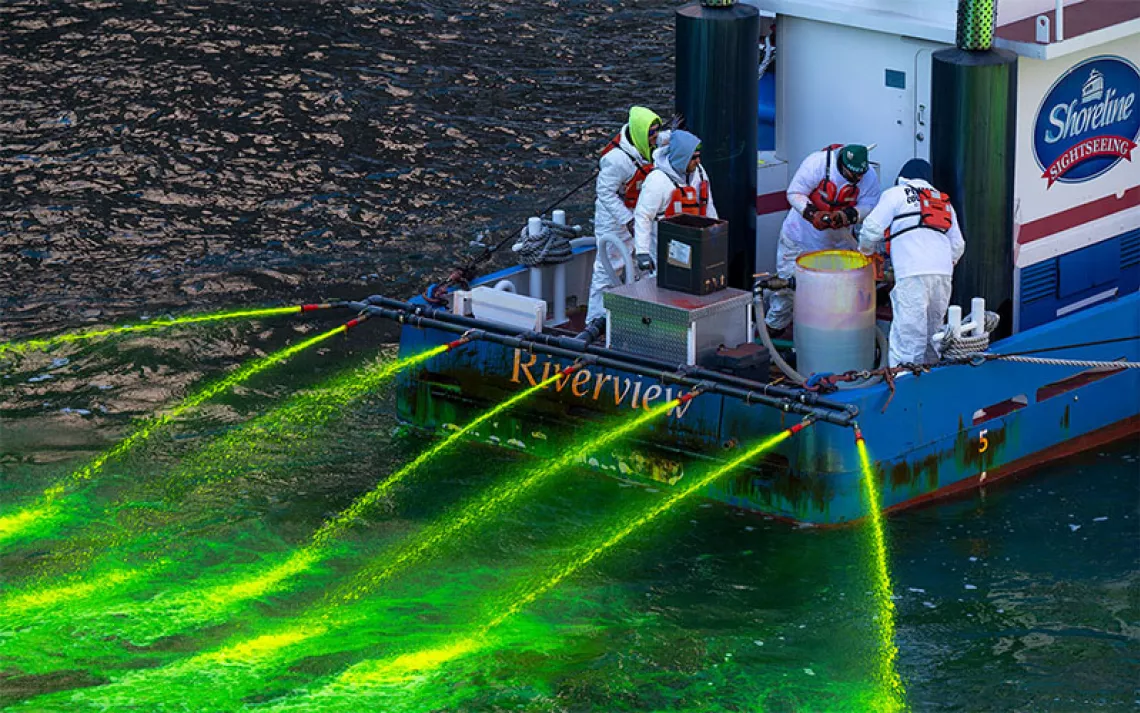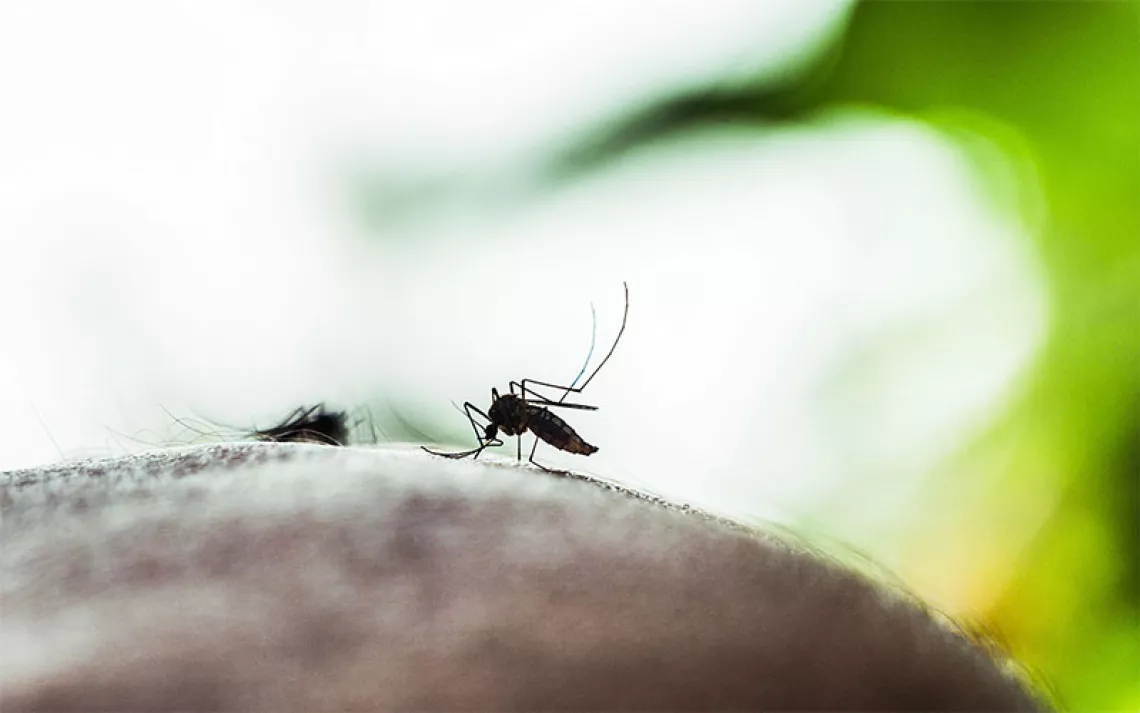Hey Mr. Green, Is My Fluoridated Tap Water Safe?

Photo by iStock/BraunS
Hey Mr. Green,
I'd like to be a big fan of tap water, but my city fluoridates its water and I don't want to ingest fluoride. Since fluoride-removing devices are too cumbersome for my home, I end up drinking a lot of bottled water. I feel guilty doing it, so is there a solution?
—Mary, in Long Beach, California
I’m quite convinced by the research and meta-research I’ve seen that the amount of fluoride commonly added to U.S. water supplies is safe, but I also respect the choice of those who simply don't want it in their water, like the residents of Portland, Oregon, who voted down fluoridation a few years ago. They may be accused of over-scrupulous application of the precautionary principle, “better safe than sorry,” but I can’t say that’s wrong. For those who want to see the arguments pro and con, here are but two of the zillions of opposing sources: Fluoride Action Network (con) The American Dental Association (pro).
If you don’t want any of the usual contraptions that remove fluoride from water, you could buy or make a solar still, although that too would be cumbersome, plus it would have to be outside in the sun to operate effectively—and I recommend use of stills as God intended, for the production of alcoholic spirits. Some people believe that boiling water eliminates fluoride, but in fact all it does is increase your energy use while actually concentrating the fluoride in the water.
But are you sure your bottled water doesn’t contain fluoride anyway? There can be naturally occurring fluoride in springs, wells, and other sources, and there is no requirement that bottlers state the fluoride content, unless they add fluoride to the water. Moreover, some bottled water may even come from municipal supplies that are already fluoridated. If the label on the bottle says the water has been treated by distillation, reverse osmosis, or “another suitable process,” it may meet standards that allow it to be labeled as “purified water,” according to the U.S. Food and Drug Administration. But the only way to be absolutely sure is to contact the bottler and ask about the fluoride content.
I’ll refrain from launching into the long history of the fluoride debate, which begins when its effects, first noted in Colorado Springs, Colorado, were researched by elegantly named figures like Dr. Green Vardiman Black, Dr. Elias Elvove, H.V. Churchill, and H. Trendley Dean. It was first added to public water in Grand Rapids, Michigan in 1945, and even reaches into the world of rock ’n roll: Lubbock, Texas, the hometown of the immortal Buddy Holly, has naturally elevated levels of fluoride, which causes dental stains. So Buddy went and had his teeth capped as soon he could afford it, and the rest is history.
Before closing, do allow me to indulge in a few observations about bottled water itself, which has to be one of the most ingenious scams in history, ranking right up there with Wall Street’s derivatives. U.S. sales were estimated 10.9 billion gallons, raking in $13 billion, according to the International Bottled Water Association. At about $1.20 a gallon, that’s more than a hundred times the cost of even your priciest municipal water. Then there’s the colossal waste of energy, plastic, and other environmental damage, all documented in alarming detail by the Container Recycling Institute.
You might find some of the spin by the bottled-water flack folk rather amusing. They tout it as a healthy alternative to soda, saying that many “consumers are making healthier choices...and they know that safe, convenient, refreshing bottled water has zero calories.” Better yet, they celebrate its low environmental footprint: “bottled water still has the smallest water and energy use footprint of any packaged beverage,” while at the same time they knock environmentalists, saying that “despite continued efforts by some activist groups to discourage people from drinking bottled water, consumption and sales of this healthy product are increasing as consumers make their voices heard in the marketplace.” As an example of the deranged and dangerous idea of making The Market the arbiter of human behavior, this one is hard to beat. —Bob Schildgen
 The Magazine of The Sierra Club
The Magazine of The Sierra Club



